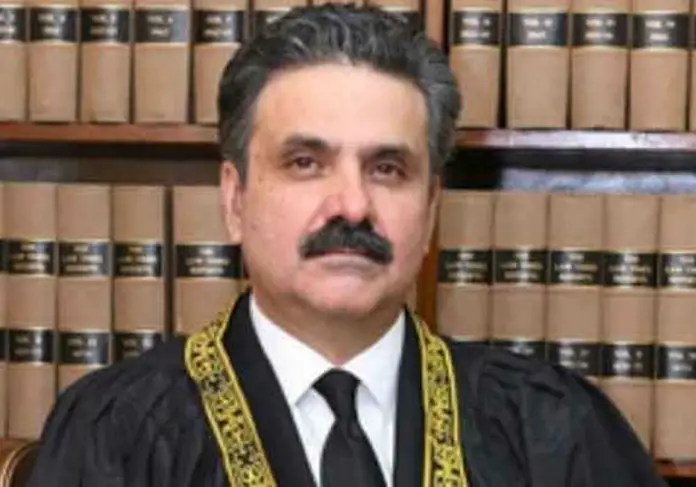Supreme Court Judge Yahya Afridi has objected to the chief justice’s use of suo motu authority in the election date matter.
The supreme court judge in his additional note questioned the reasoning behind taking the suo motu notice even while the matter was still ongoing before the high courts in Punjab and Khyber Pakhtunkhwa.
Also, Judge Afridi withdrew from the nine-judge panel hearing the case. As a result, Chief Justice Umar Ata Bandial appointed a new five-judge panel to hear the issue.
Justice Yahya wrote, “For detailed reasons to be recorded later, it appears that prima facie these petitions fall within the purview of Article 184(3) of the Constitution of the Islamic Republic of Pakistan, 1973. However, it would not be judicially appropriate to exercise the power to make an order under the aforementioned provision of the constitution given that the matters raised in the petitions are presently pending adjudication before the Lahore High Court (LHC) in Intra-Court Appeal No. 11096 of 2023, Contempt of Court Petition No. 10468/W/2023, and the Peshawar High Court in Writ Petition No. 407-P/2023.”
The LHC verdict and the peculiarly charged and unflinching contested political stances taken by the parties warrant this court to exercise judicial restraint to support the principle of propriety, even though it is noted that the jurisdiction under Article 184(3) is not affected by the pendency of any matter before any other court or forum.
The judge went on to say that this was done to prevent any negative impressions about the Supreme Court’s haste to make preemptive rulings.
“Therefore, passing any finding or remarks during the proceeding of the present petitions by this court would not only prejudice the contested claims of the parties in the said petition/appeal pending before the respective high courts but, more importantly, offend the hierarchical judicial domain of the high court as envisaged under the Constitution. It would also disturb the judicial propriety that the high court deserves in the safe, mature, and respectful administration of justice. Accordingly, I dismiss these three petitions,” Justice Yahaya asserted.
He determined that it would not be appropriate to exercise his authority under Article 184(3) of the Constitution in the three petitions.
“So, I see no point in continuing to hear them. Nonetheless, I defer to the honorable chief justice in determining whether I will remain on the bench now hearing the aforementioned petitions,” Justice added.







